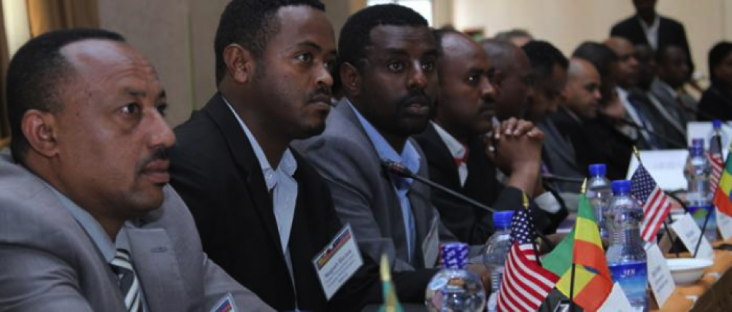- Where We Work
- Africa
- African Union
- Power Africa
- Trade and Investment
- Angola
- Benin
- Botswana
- Burkina Faso
- Burundi
- Cameroon
- Central Africa Regional
- Central African Republic
- Chad
- Côte d'Ivoire
- Democratic Republic of the Congo
- Djibouti
- East Africa Regional
- Eswatini
- Ethiopia
- Ghana
- Guinea
- Kenya
- Lesotho
- Liberia
- Madagascar
- Malawi
- Mali
- Mauritania
- Mozambique
- Namibia
- Niger
- Nigeria
- Republic of the Congo
- Rwanda
- Sahel Regional
- Senegal
- Sierra Leone
- Somalia
- South Africa
- South Sudan
- Southern Africa Regional
- Sudan
- Tanzania
- The Gambia
- Uganda
- West Africa Regional
- Zambia
- Zimbabwe
- Asia
- Europe and Eurasia
- Latin America and the Caribbean
- Middle East
- Mission Directory
Speeches Shim

Maximizing the value of publicly funded energy projects is not just good public management practice, it’s a critical piece of the infrastructure planning process for developing economies. At the Ethiopian Electric Power Company (EEPCo), Ethiopia’s national power generation and transmission company, a recent USTDA grant is helping to improve procurement procedures and ensure “smart buying” for energy infrastructure, including procurements that support Power Africa projects. The grant builds on USTDA’s efforts to help the Government of Ethiopia establish best-value procurement practices, such as the use of life-cycle cost analysis, in its tender processes.
“USTDA and EEP are looking forward to working together under this exciting phase of the Global Procurement Initiative (GPI),” said Lida Fitts, USTDA’s Acting Regional Director for sub-Saharan Africa, who signed the grant alongside EEPCo’s CEO, Azeb Asnake, on February 3. “EEP’s commitment to incorporating value-based procurement methods into their public tenders will help them achieve better outcomes from those tenders, leading to better quality and more reliability in the energy sector.”
This USTDA collaboration in Ethiopia is the type of important “behind the scenes” work that Power Africa and partners engage in across sub-Saharan Africa. Our engagement with African governments and private sector companies helps to remove barriers that impede sustainable energy development in sub-Saharan Africa. Together, we are opening opportunities for wind, solar, hydropower, natural gas, biomass, and geothermal power production across the continent.
The goal of the GPI, in particular, is to advance partner countries’ capacity to carry out effective infrastructure procurements. In Ethiopia, the use of international best practices and policies in public procurement can support sustainable energy infrastructure development, increase access to electricity, and enhance economic growth.
In October 2015, USTDA and its GPI partner, the George Washington University Government Procurement Law Program, provided training to 50 procurement officials from EEP, the Public Procurement and Property Administration Agency, and other federal entities. In April 2016, USTDA will host a group of senior Ethiopian officials in the United States to highlight U.S. federal, state, and municipal examples of best value and life-cycle cost analysis in the procurement process.
Learn more about Power Africa’s strategy to reach 30,000 megawatts (MW) and 60 million connections in the Power Africa Roadmap.

Comment
Make a general inquiry or suggest an improvement.